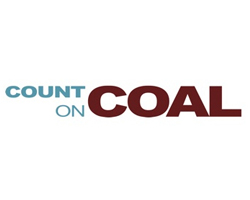One Retirement Too Many

July 11, 2018 - Summer is here in all its sun-drenched glory. There’s a pretty good chance you’ve been swimming, seen some fireworks or had some watermelon. Perhaps it's having both fireworks and watermelon on the mind, but reading about stress on the electric grid, falling reserve margins and blackouts in California jogged memories of the internet sensation that was rubber band vs. watermelon experiments. For the uninitiated, they are highly-unscientific entertainment that involves slowly placing one rubber band after another around a watermelon until it explodes. Experiment or cheap thrill – people love them.
A few years back two Buzzfeed staffers live-streamed this watermelon vs. rubber band experiment and more than 730,000 people tuned in to see the inevitable. Two British YouTubers uploaded a similar video, and it has more than 16 million views. Exploding watermelons are apparently must-see content.
Perhaps the rubber band that destroyed the watermelon is today’s straw that broke the camel’s back. Regardless of which idiom you prefer, the underlying message is the same and critically important.
Whether it’s the slow accumulation of rubber bands on a watermelon or the gradual but ever-accumulating loss of baseload coal plants from the electric grid, there is a foreboding sense that these stories could end the same way. The loss of a single coal plant or 10 may not initially threaten the integrity of the grid, but as those losses pile up we could be pushing the grid to its limit.
.png)
.png)
Rolling blackouts are so rare here in the U.S. that we almost view them with a tinge of nostalgia. But blackouts – especially during the height of summer or winter – can be dangerous. In fact, they are often deadly. They not only shut down commerce, but without air conditioning or heat, people's lives are threatened and unfortunately lost.
It’s precisely because a reliable supply of electricity is so important that we must take grid reliability and resiliency so seriously.
The warning signs of undue strain are there if we are willing to read them. Thousands lost power in and around Los Angeles this weekend during a heatwave. On the other coast, thousands in New Hampshire faced power outages as well. In Texas, due to the early retirement of several well-operating coal plants, grid operators are having to get creative to ensure reliability. Along with other measures, they’re bringing a moth-balled plant back online and asking customers to cut demand during peak periods. The North American Electric Reliability Corporation has already warned that both the Texas and California grids are going to face operational challenges this summer.
What is particularly troubling about the loss of baseload, fuel-secure plants is that they’re being replaced with less reliable and less resilient alternatives. Non-dispatchable power is of no use in a crisis. Just-in-time fuel delivery is inherently vulnerable. That the threats to our ever-expanding pipeline network are now both physical and cyber should be deeply concerning.
We must treat grid reliability and resiliency with an abundance of caution. Increasing our margins as we venture into an increasingly uncertain future is not only prudent, it's common sense. There's not a minute to lose to take decisive action to stop the loss of our baseload power plants. The rubber bands are adding up.
CoalZoom.com - Your Foremost Source for Coal News

